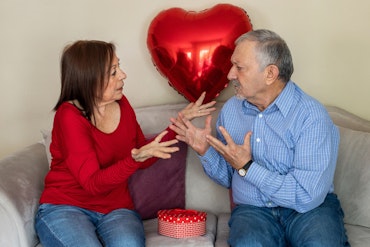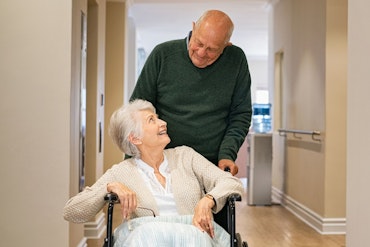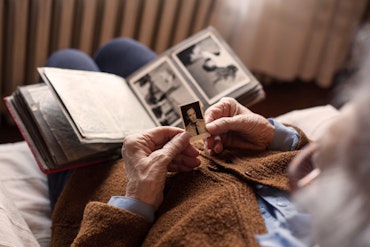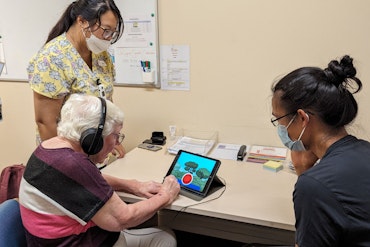The common culprits of elder abuse revealed in ‘No More Shame’ research
Caution: this Talking Aged Care article contains references to elder abuse
![<p>The Medical Research Future Fund [MRFF] provided the ‘No More Shame’ project with $1.5 million dollars in funding. [Image: Shutterstock]</p>](https://agedcareguide-assets.imgix.net/news/articles/wp/bustedschnozzeye.jpg?fm=pjpg&format=auto&w=550&q=65)
The Medical Research Future Fund [MRFF] provided the ‘No More Shame’ project with $1.5 million dollars in funding. [Image: Shutterstock]
Key points:
- Professor Bianca Brijnath, Director of Social Gerontology at the National Ageing Research Institute, said one-in-six older Australians experience elder abuse
- Elder abuse is often perpetrated by family members
- Victims of elder abuse may feel that it is difficult to speak up about their wellbeing
Professor Bianca Brijnath has recently collaborated with family carers, older people, hospital health care providers and elder abuse experts to design a new model for care. In particular, Bianca sought to address the stigma which may prevent older people from addressing abuse.
Professor Brijnath said the co-design process was informative and the support model of care for hospital healthcare providers includes:
- Training for health care providers on elder abuse and how to screen for it
- A screening tool
- A site champion for more help and support
“Stakeholders at the co-design workshops gave us great advice on the skills that healthcare providers will need,” Bianca said.
The Professor’s research and informed model for recognising elder abuse aimed to equip aged care and healthcare staff with the ability to recognise abuse and refer the matter to social service authorities.
“They talked about empathy, respect and putting older people at the centre. They said the provider must have absolute loyalty to the older person.”
Elder abuse is an umbrella term for a range of different physical, financial, social, sexual or psychological acts committed against an older person. Professor Brijnath noted that not only are acts of elder abuse perpetrated by family members of the vulnerable person, but can range in scale.
“Sadly, elder abuse often occurs in a relationship of trust. The main perpetrators of abuse of older people are their family members, often their adult children,” she said.
“An adult child might visit their parent and say, ‘I’ll do the shopping for you.’ Mum gives her child her credit card and they use it to buy groceries for their family as well, or Mum gives them $100. They spend $80 on groceries and keep the change.”
Professor Brijnath added that family members may often resort to psychological tactics, such as conditional visitation of their grandchildren or leveraging the age of a relative to coerce them into forfeiting assets.
“What can happen is the older person transfers their assets and then the family reneges on their commitment. Older people can end up in very difficult circumstances — they could be in their 80s and have no money or home,” the Professor continued.
“Older people experience a great deal of shame and sadness when family members abuse them — it’s a source of embarrassment — they think it’s a reflection on their own parenting. Even if they are desperate, older people don’t want to report their children to the police.”
Bianca is committed to rolling out the screening system, assuming increased awareness, adoption and results improve the rate of elder abuse disclosure. If you or someone you know may have been a victim of elder abuse, call 1800 353 374 to file a report.























